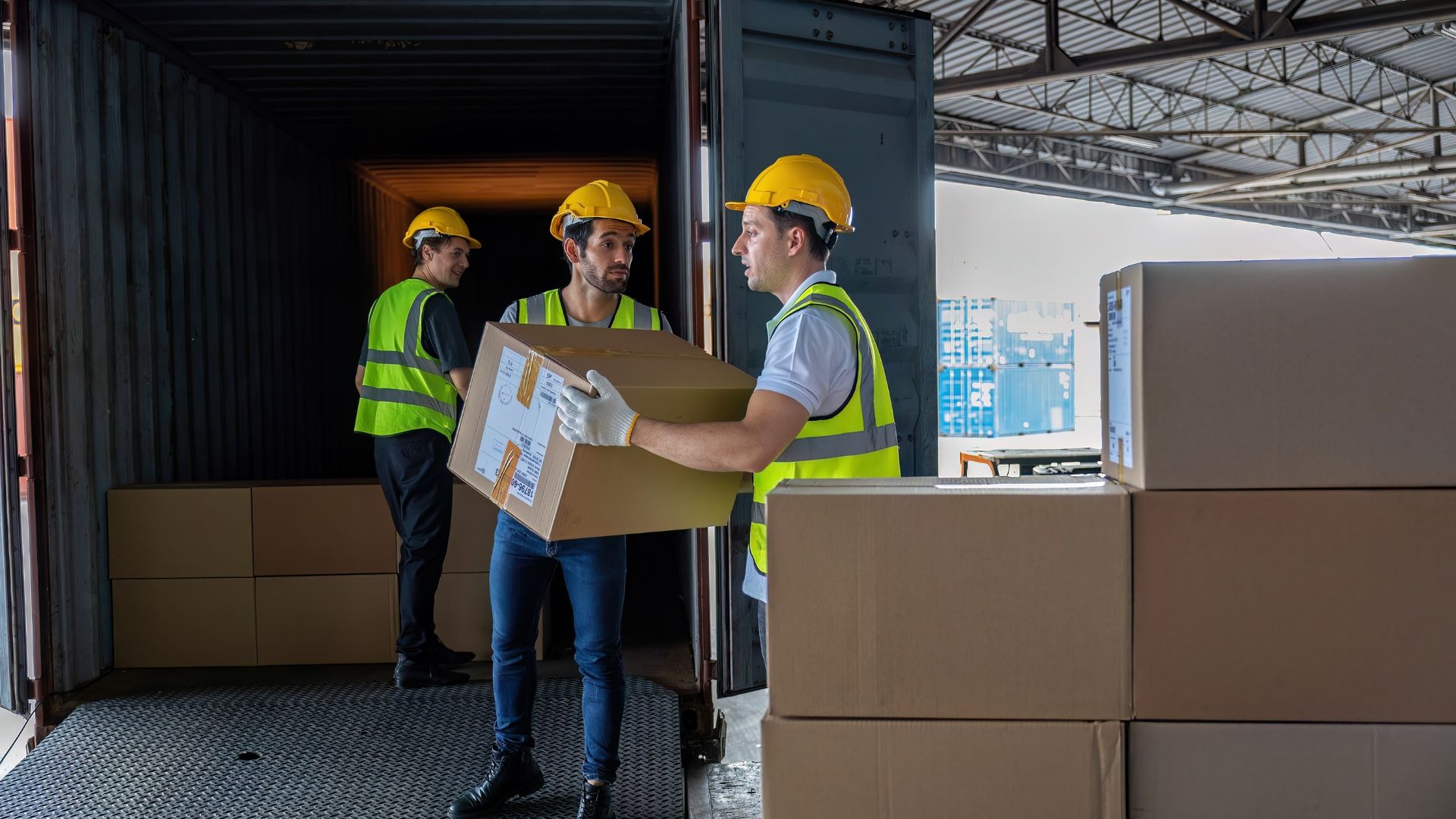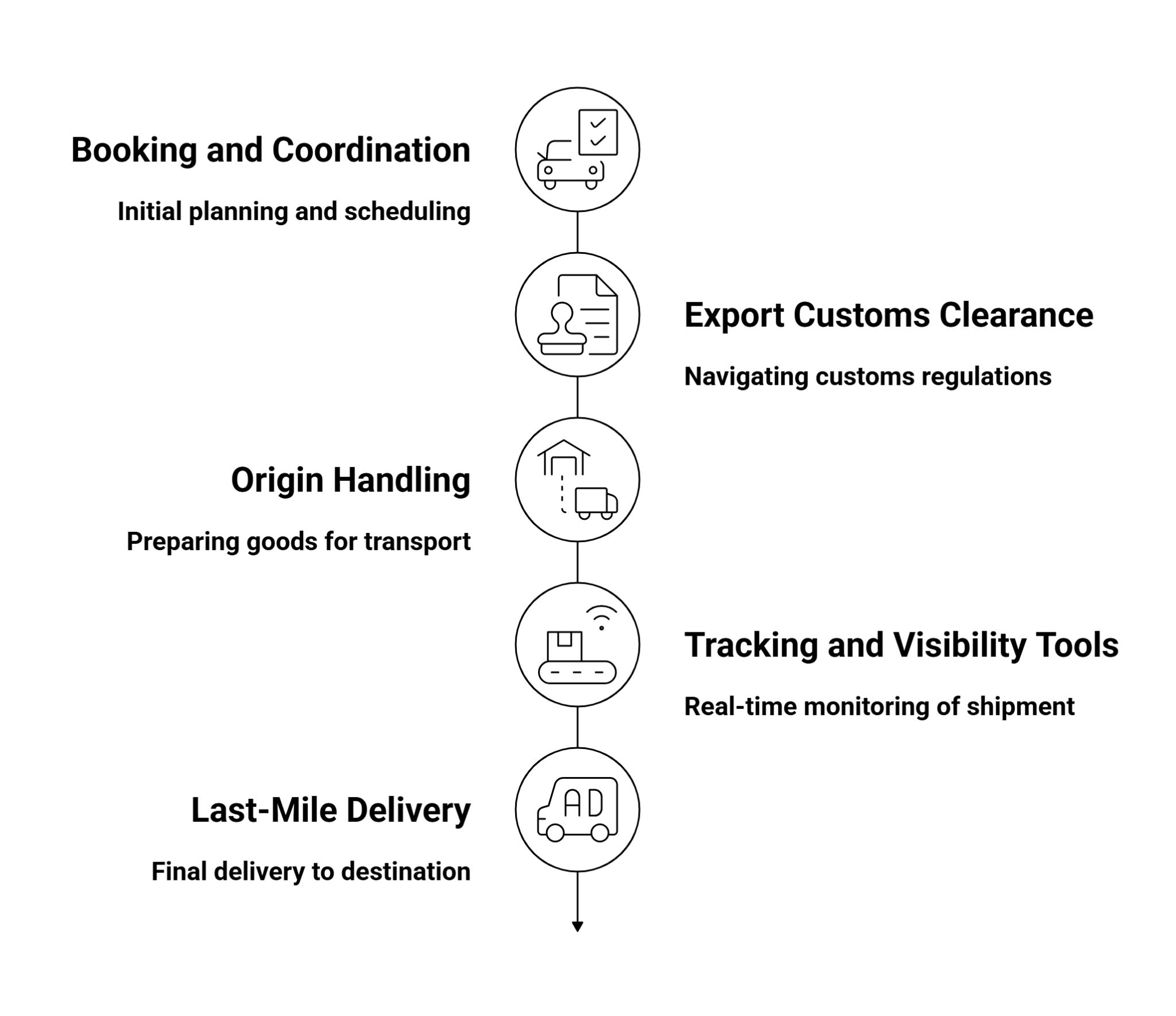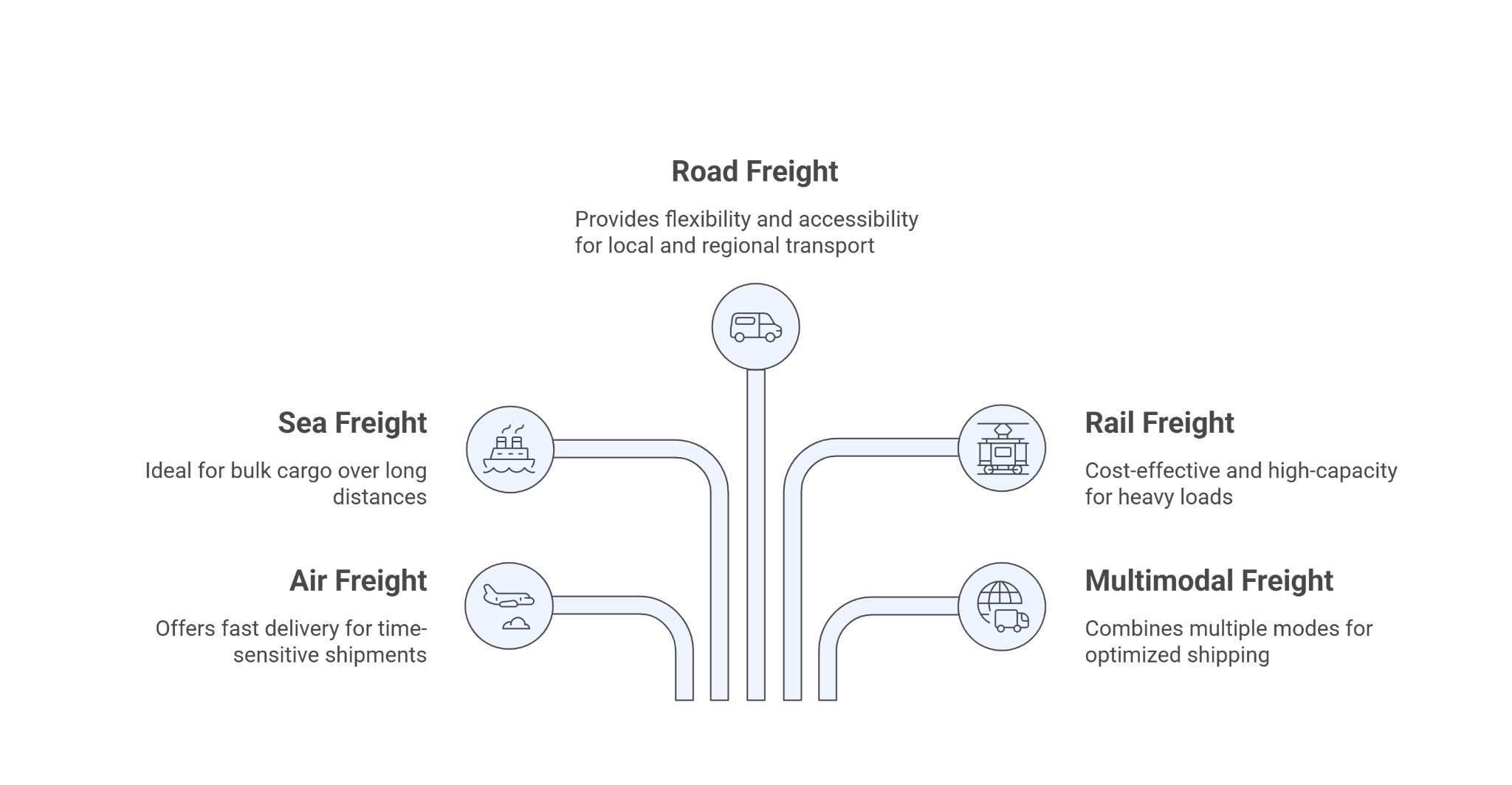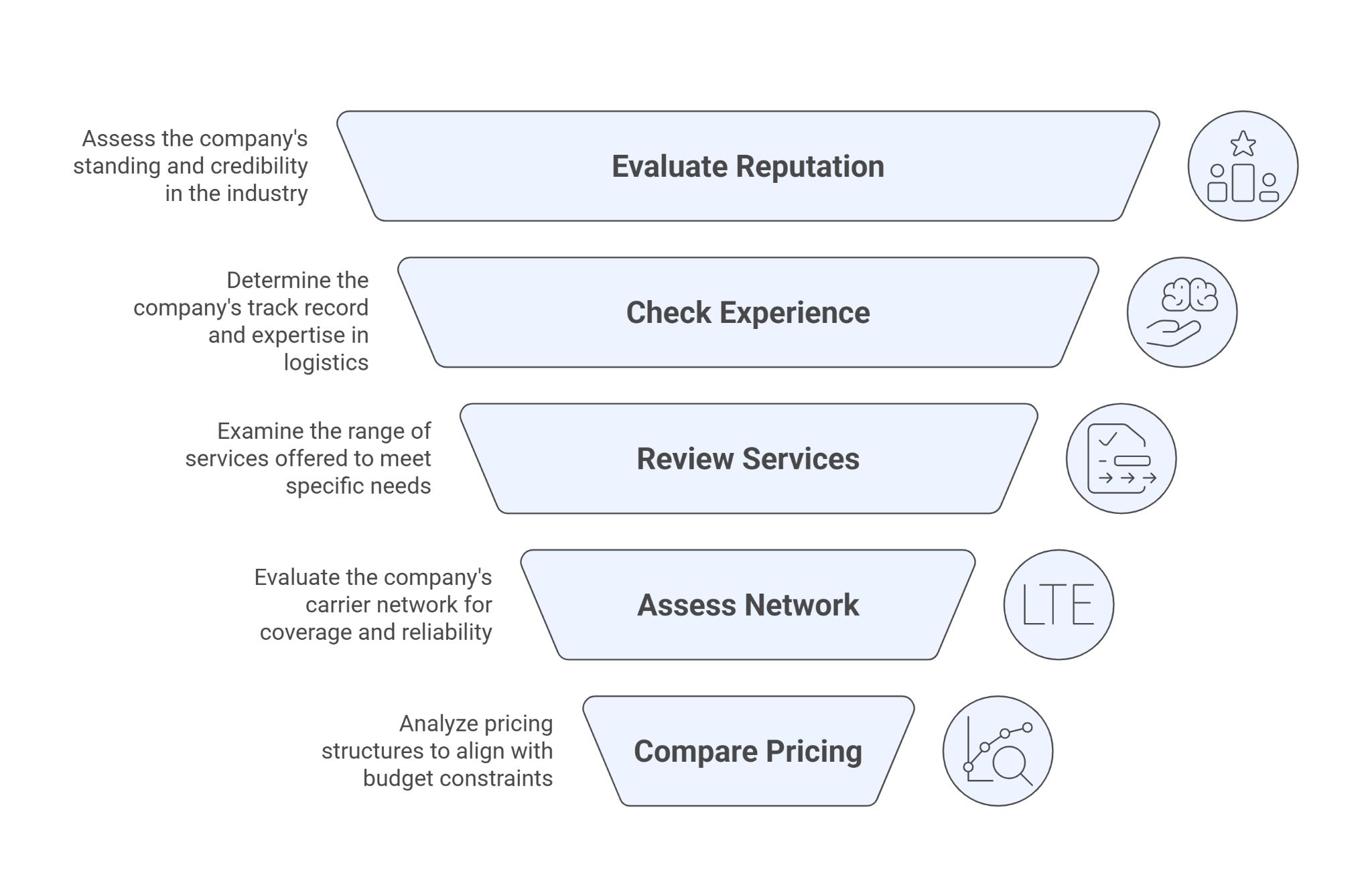
What is Freight Forwarding – What Does a Freight Forwarder Do? The Essentials
October 11, 2025
AAJ Swift

In freight forwarding, shipments are managed and organized on behalf of a business by coordinating with the carrier, handling paperwork, and ensuring goods are safely delivered to their destination.
You have a business, and you need to ship domestically and internationally. There is a lot of paperwork that needs to be addressed to ship your goods. For that, you need to turn your focus on hiring a specialized logistics solution for your help, and where Freight forwarding comes in handy. You can call it the go-to expert between shippers and transport companies.
So, knowing how freight forwarders work helps you to make better choices. So, let's take a look at how freight forwarding companies help businesses move products worldwide and how you can choose the best one for your business.
Freight Forwarder Meaning – Understanding The Role
A freight forwarder basically acts as a logistics coordinator. They move goods between businesses and carriers, handling documentation, customs, and shipping arrangements—even though they don't own any trucks or planes.
In short, freight forwarding companies don't own any vehicles that actually move the stuff. Instead, they act as a coordinator to coordinate everything, i.e., from booking cargo space to preparing shipment documents.
For example, a coffee shop chain needs beans from Colombia—fast. The freight forwarding company sets up air freight, handles temperature-controlled transit, preps import permits, manages customs duties, and arranges delivery to several Indian cities.
Role and Responsibility of A Freight Forwarding Company In Supply Chains

The following are some of the responsibilities and their role in the global supply chain.
- Route Planning: Picking the best mode of transport and route for each shipment.
- Carrier Selection: Choosing a reputable and reliable logistics company.
- Documentation: Handle all paperwork related to shipments.
- Cost Negotiation: Negotiate prices with a transport company and ways to decrease the total shipping cost.
- Shipment tracking: Keeps in check the current shipment's status.
- Problem resolution: Resolve any issues, such as delays or damaged cargo, promptly and effectively.
- Compliance and Safety Tasks: Ensure shipments comply with trade law and are properly insured.
- Communication Role: Keeps everyone informed with the latest shipping updates.
Why Businesses Need Freight Forwarding Services
Here are the reasons why businesses count on freight forwarding services for smoother deliveries:
- Simplifies Complex International Shipping: They handle all paperwork along with managing different carriers, and save you from understanding endless shipping rules.
- Saves Time and Money: They make decisions such as FCL and LCL shipments, routes, and modes of transport that become a contributing factor in total shipment cost.
- Provides Risk Management and Protection: Freight Forwarders offers cargo insurance, along with predefined alternative routes in case of route issues.
- Custom Clearance: They identify any issues in paperwork or shipment packaging before they become a significant problem, protecting your goods from customs rejection.
- Delivers Global Expertise with Domestic Transportation Knowledge: They have a wide network of logistics partners, both nationally and internationally. They can manage goods in different time zones and languages.
- Warehousing: They have a network of 3PLs that offer both warehousing and B2B transportation solutions for export goods.
- Taxes and Duties: They manage duties, taxes, and inspections based on each country's regulations and stay up to date on any changes to trade laws and tariffs.
- Add-on Services: Freight forwarders also offer door-to-door delivery, custom packaging, labelling, and reverse logistics.
Why It Matters In Global Trade And E-commerce
Freight forwarding partners are important for any business that wants to ship its goods both nationally and internationally, especially for those new to the business.
Without a Freight Forwarder: You have to understand every trade and shipping law, customs rules, taxes, and carrier requirements. This not only consumes your resources, but most of the time, without proper paperwork, your goods can get stuck at customs.
For Global Trade:
- They lower shipping costs by consolidating cargo.
- They make sure you follow trade regulations.
- They are familiar with the ins and outs of various transportation modes.
- They handle currency exchange and payment terms.
For E-commerce Businesses:
- They let small businesses ship worldwide.
- They help manage inventory in multiple countries.
- They offer tracking and keep customers updated.
- They handle returns and exchanges across international borders.
The global freight forwarding industry comprises over 40,000 companies operating in 150 countries. This massive network enables even small businesses to ship products worldwide.
Freight forwarders also mitigate risk by offering insurance and handling compliance.
How Freight Forwarding Works – The Step-By-Step Process

In freight forwarding, there are seven primary steps involved in commercial shipping goods to their final destination.
Step 1: Booking and Coordination: The Freight forwarder determines the most suitable transport mode (e.g., air, road, rail) and schedules the pickup.
Goods leave the business's warehouse and are delivered to their freight forwarder's consolidation or logistics hub.
Step 2: Export Customs Clearance: Prepare documentation such as commercial bills, tax invoices, GST/regional taxes, and other trade documents. In international exports, documents are submitted to customs agents for review, and once approved, they permit the goods to be exported.
Step 3: Origin Handling: At the logistics hub, workers inspect the packaged goods with the right label and finally load the cargo into the container. It is usually FCL (Full Container Load) or LCL (Less than Container Load).
Step 4: Tracking and Visibility Tools: Freight forwarders coordinate with trucks, airlines, shipping lines, or rail companies for the current status of travel and schedules. They usually use GPS to live track the trucks and shipments until they reach the destination.
Step 5: Last-Mile Delivery: Local trucks, vans, and bikes are selected for last-mile delivery based on the shipment size.
Difference Between A Freight Forwarder, Shipping Line, And Customs Broker
These three players in shipping have their own jobs. They handle different parts of the process, and below is the comparison table:
Types Of Freight Forwarding Services

There are five main types of freight forwarding services. These are listed below:
How To Choose The Right Freight Forwarding Companies

Here are some of the questions that you should ask your freight forwarding partner before making a deal:
- Do they service your specific shipping routes and destinations?
- What technology do they offer for tracking and managing shipments?
- How many years of experience do they have as a freight forwarder?
- Ask them about a transparent breakdown of all costs and fees?
- Whether they provide 24/7 customer support or not?
- Ask about their on-time delivery record (the industry standard is 95%).
- How do they handle shipping problems and delays?
Working with a freight forwarding company gives businesses access to better technology and larger delivery networks, taking all the burden of managing shipping headaches.

